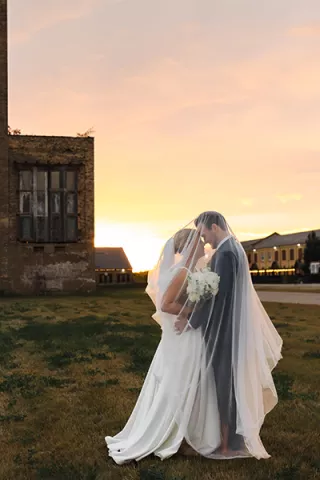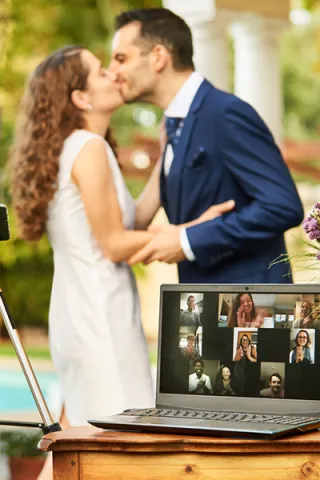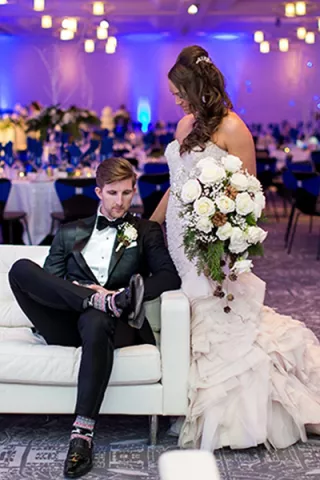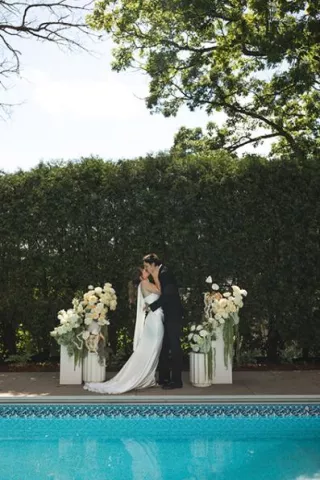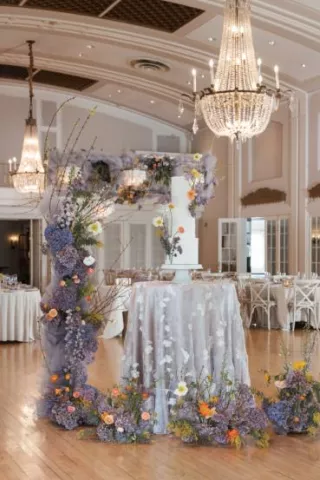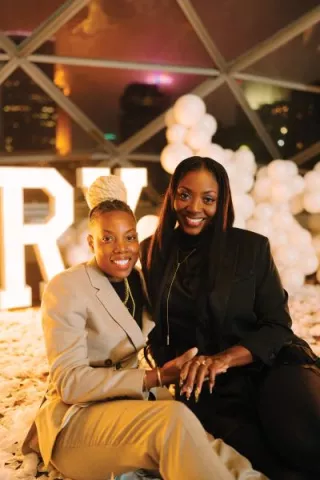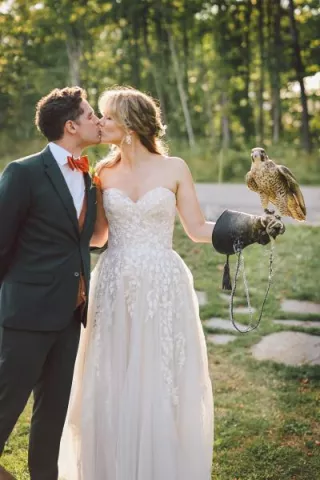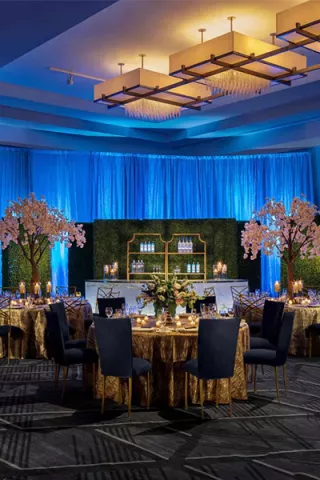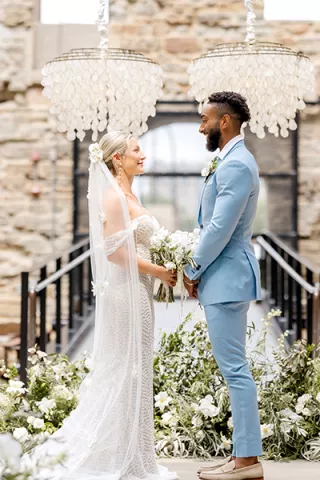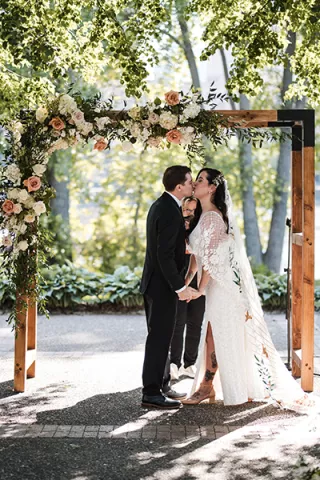“Any wedding takes 250 to 300 hours to plan,” says Amy Zaroff, principal of Amy Zaroff Events + Design. “If a bride is doing it herself, it could be even more.” When it comes to wedding planning, every bride must decide whether to go it alone or hire a pro to help with all the details. But even the most DIY-oriented bride might want to consider hiring a seasoned planner, who’s been in the wedding-day trenches and knows what to expect. Read on to learn how planners can save you time and money, and how they operate behind the scenes to pull off a perfect day.
What’s in a Job?
“People think it’s a lot more glamorous than it is,” says Amy Fuerstenberg, co-founder of Mi Mi Design. “I love the job, but it’s a lot of gritty work.”
Wedding planners love all of those nitty-gritty details. They set timelines to ensure that the flowers don’t arrive before the tables are set up, for instance. They collect ring pillows and marriage certificates so the bride doesn’t have to keep track of them. They know precisely when a cake on display outdoors will be at risk of melting.
“We’ve already tested the waters,” says Zaroff. “We know what works and what doesn’t.”
If a bride wants fireworks to close the night, wedding planners are the ones checking city code. If the reception is in a tent, they stash a generator on-site (they know to have ample energy on hand because they’ve seen two coffee pots in a single outlet short-circuit a tent’s electricity).
“I put together a detailed, personalized timeline and agenda for all of my clients, and I help them work through the timeline from start to finish,” says Joan Nilsen, president of Ambiente. “I hope that my brides feel like they’re stress-free because they’ve hired me.”
The Total Package
To avoid day-of disasters, some planners bring a team of people to the wedding day, keeping someone with the bridal party, someone at the ceremony and someone at the reception.
“I know a competent person is there who can take care of any situation,” says Rachelle Mazumdar, lead wedding designer at Style-Architects.
Wedding planners with a design focus ask brides to bring in magazine clippings and describe their dream wedding—then it’s up to the firm to pull it off. “We have a design presentation six months prior to the wedding,” Zaroff says. “Once it’s approved, we go into production.” Some wedding planners will go a step further, designing floral arrangements or stationery.
Well-Connected
One of the biggest perks a wedding planner can offer comes with any package: her Rolodex. Last January, a bride from New York panicked when she realized four days before her Minnesota wedding that local shops wouldn’t press a dress she had bought out of town. Fuerstenberg simply called up a vendor with whom she had a good relationship and they offered to press it for free.
“Within a half-hour I had a relieved bride,” says Fuerstenberg. Planners do so much business in the industry, she says, vendors are willing to help them out in a pinch.
Experienced wedding planners also have all the right resources at their fingertips, says Mazumdar, and that’s a crucial part of the job. “It’s not just making everything look pretty.” She and other planners often use national vendors for products and services unavailable in the Twin Cities area, like personalized monograms for the dance floor, or inflatable outdoor seating. Mazumdar also attends national conferences to brush up on topics like contract review. “Room rental rates are definitely negotiable,” she advises. “People don’t know that. Even food and beverage minimums are all negotiable.”
Bearing the Burden
A planner’s organization helps avoid disasters, well in advance. “The biggest horror stories are usually before the day of [the wedding],” says Mazumdar. “During follow-ups with vendors, you can find huge holes, because the bride or the couple didn’t know what to ask.”
One error Mazumdar caught involved a wedding on
a ship. The boat was scheduled to drop off guests at 10 p.m., when the couple expected the reception to last until midnight. The party would have ended early if Mazumdar hadn’t double-checked the plans.
Even with all those details to manage (and disasters
to avoid), planners are unfazed. “I don’t think planning is stressful,” says Nilsen. “What’s stressful is doing my taxes.”
Making the Pick
When choosing a planner, Mazumdar says brides should go with their gut and connect with a planner on a personal level.
“It’s just like picking a photographer,” says Zaroff. “You spend eight hours of a day with them. For a wedding planner, you’re with them for an entire year. You know that this person has your back, and they will do anything to make it the day of your dreams.”
